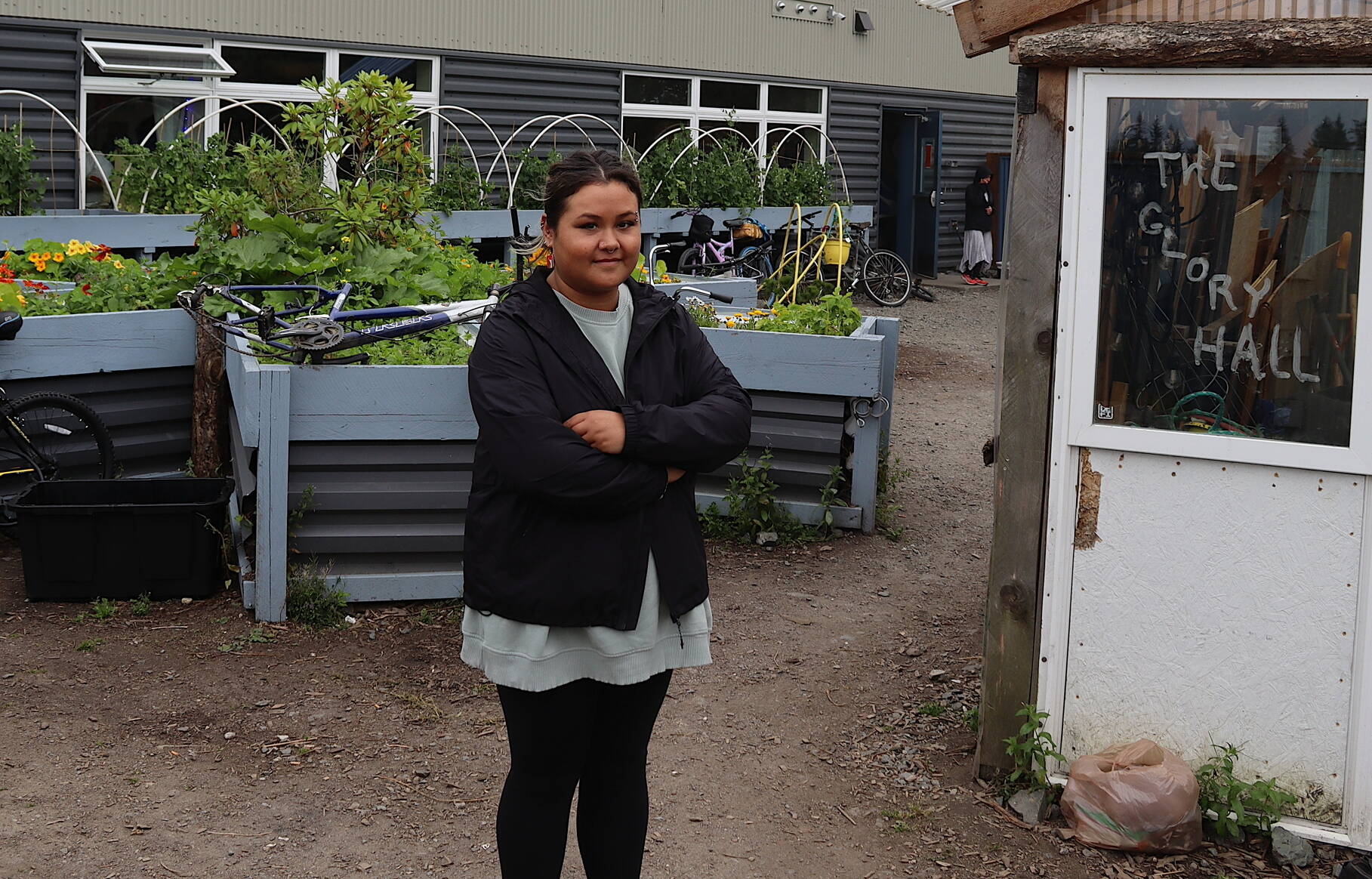The Glory Hall’s new leader says one of her goals is essentially the opposite of what somebody like a hotel manager would want.
“A goal of mine is that the shelter becomes underutilized,” Kaia Quinto, who Friday officially became the executive director of the facility for people experiencing homelessness, said in an interview Monday.
Vacancies at the Teal Street shelter — which is consistently full and surrounded by numerous other people camped in tents nearby — would indicate success at a primary goal of providing more permanent supportive housing for disadvantaged people in Juneau, Quinto said.
That’s a goal she shares with her predecessor, Mariya Lovishchuk, who stepped down after 15 years so she could focus on doing such work through the Juneau Housing First Collaborative, the Glory Hall’s parent organization. Lovishchuk departed from the shelter at the beginning of July, so Quinto said she has been doing the director’s duties since as she settles into her newly official role.
Quinto, who has worked at the Glory Hall for three years and became the deputy director last October, said Lovishchuk prepared her well for the duties of the job — although it’s a bit challenging knowing what those are from day to day.
“I think I’m still kind of figuring that part out,” Quinto said. “I think every day is so different, too. Like I can’t come to work and prepare for anything. I do come to work with a set plan — like ‘I’m going to get this done today’ — but then 20 new things pop up.”
One aspect of being in charge is she has to make some of the really tough decisions, such as deciding when to ban somebody from the shelter for misbehaving and selecting who can stay there when beds are limited.
“It really is like having to decide whether someone will get a bed to sleep on that night or if they’re going to sleep outside,” Quinto said. When making that decision “I tried to go off of how vulnerable each person is — like if I truly believe this person won’t survive the night outside.”
She said she applied to work at the Glory Hall because of her father, who as a former Juneau Police Department officer encountered people experiencing homelessness along downtown streets for many years. She said there have been notable changes in the traits of people experiencing such struggles since then — and even in the few years since she started working at the shelter.
“What I didn’t expect was all the new fentanyl and all the rise in drugs recently,” she said. Yet “I think I came into this really just wanting a job and wanting to help people, and I think that I found what I want to do for the rest of my life.”
About 80% of the people at the Glory Hall tend to be familiar faces, some who’ve spent long periods at the shelter since she started, Quinto said.
“I’ve noticed that really just a lot of them don’t have a support system,” she said. “And so I think the Glory Hall as a whole (is) being their support system and just listening to them. I have people come in here and they’ll just talk. I think they just want someone to listen and to tell them that they’re being heard.”
The goal of more permanent support housing will require collaboration by other organizations, Juneau’s municipal government and other stakeholders, Quinto said. Juneau Housing First has completed 64 units at the Forget-Me-Not-Manor (and is building 28 more this year) that opened in 2017, for instance, while Gastineau Human Services recently got a conditional-use permit for a 51-unit transitional living apartment for people recovering from substance abuse.
The Glory Hall and other facilities on Teal Street have appealed to city leaders for help in recent months due to problematic behavior by unhoused people who can’t stay at the shelter. The Juneau Assembly opted earlier this year not to establish an official campground for the homeless for the first time in many years, due to a sharp increase in reported problems at such a campground last year, resulting in a “dispersed camping” policy that has people sleeping in various spots throughout town.
Quinto said she doesn’t know specifically what the Assembly might do as a solution to the issue, but a recent U.S. Supreme Court decision allowing municipalities to ban outdoor sleeping in public spaces is allowing JPD to respond to camper-related complaints more effectively.
But there also needs to be strong programs to help people without shelter, Quinto said, since she consistently sees new faces at the Glory Hall who recently lost their living spaces for some reason, in addition to some from out of town.
“I would just really hope that people show compassion and think about it like as if you were in their shoes, and not just judging them,” she said.
• Contact Mark Sabbatini at mark.sabbatini@juneauempire.com or (907) 957-2306.

